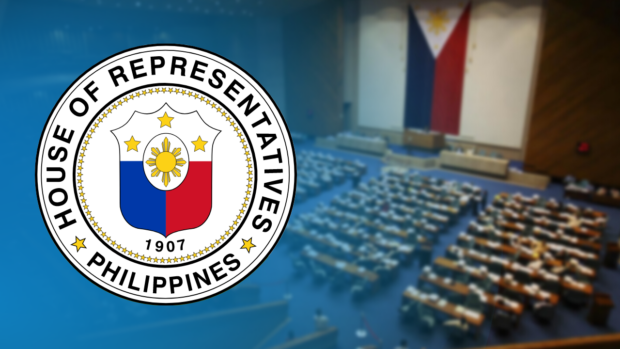House panel OKs substitute bill to expand aid to teachers, students in private schools
MANILA, Philippines — A House of Representatives panel has approved a still unnumbered substitute bill that would expand the government assistance given to teachers and students in private schools.
During the hearing of the House Committee on Basic Education on Monday, Nov. 20, several more amendments were made by lawmakers, which were eventually approved.
If approved by Congress and enacted by the President, the said bill will repeal Sections 2, 3, 4(2), 4(3), 5, 6, 7, 12, 14, and 15 of Republic Act No. 8545, the 1998 law that was used to amend the Government Assistance to Students and Teachers in Private Education Act (GASTPE).
Some of the provisions on the proposed bill which were altered are the following:
- Inclusion of phrase in Section 4 (Criteria for Voucher Assistance) which states that the provision of assistance shall also be “based on the ranking of its students in national and international assessments.”
- Removal of paragraphs on Section 8 (Basic Education Voucher Program) regarding how voucher amounts can increase — by allocating 70 percent of the amount subsidized to payment of salaries and benefits to teaching and non-teaching personnel
- Inclusion of provision in Section 8 stating that amounts received by participating private schools through the voucher program will not be included as part of its income and therefore, not taxable
- Removal of the entire Section 13 in the working draft regarding the creation of a Bureau of Private Education (BPE)
The amended substitute bill was approved with the consensus of lawmakers present, but Albay 2nd District Rep. Joey Salceda reiterated the need for Section 13. Salceda arrived late to the panel’s discussions, having attended a different committee’s hearing prior.
Section 13 in the proposed measure calls for the creation of the BPE, which will be placed under the jurisdiction of the Department of Education (DepEd). Part of the BPE’s roles, had it not been removed from the proposed bill, would be administering policies and programs related to subsidies given to schools.
Salceda proposed that private schools be given subsidies in advance so that they can use the funds allocated for the creation of more classrooms.
“Maybe in the floor na lang I’ll raise this issue. Kasi if you converge all the payments, let’s say for one sem(ester), and advance it to a particular school, na it will help them build a classroom. So the word may not be necessarily be alone, but bakit natin kinukuha ‘yong private sector? Precisely because the government alone cannot provide the facility,” Salceda said.
“So ‘yong interpretation kasi, halimbawa kung ang GASTPE receivable ko is let’s say P100 million, if it’s advanced, not necessarily lent, then the provision of the services of a particular cooperator school, essentially that will allow them to build to modernize their facilities, or build a school. So this particular capacity of whatever you call this new fund will be, is critical,” he added.
Salceda, chair of the House Committee on Ways and Means, referenced the case of the Philippine Health Insurance Corporation (PhilHealth), where reimbursements are advanced to hospitals so that these health institutions can use this for building facilities.
But the committee on basic education head and Pasig Rep. Roman Romulo said that schools are still allowed to mount funds through loans with the Social Security System (SSS).
“And the suggestion is well-taken but to complete the whole story, in the last committee meeting, the SSS was in fact here and the SSS has already submitted a position paper and according to the position paper of the SSS, they are authorized to lend for capital outlay provided that the borrowing school comply with the rules and regulations of the specific lending institution,” Romulo said.
“So the deletion of Section 13 does not mean that they can no longer approach SSS, because they are allowed and I think that was very clear in the last committee meeting except that for purposes of this bill, we say that we would focus on the voucher system given by DepEd — for SSS and other financial institutions, based on the position paper, they are authorized provided, compliant with their charters,” he added.
Salceda eventually conceded that he will have to make this point at the plenary deliberations since the bill was already approved by the committee.
Before the bill was approved, several concerns were raised about expanding GASTPE: last November 7, a group representing teachers and staffers from colleges and universities in the country warned that the new bill would allow schools to raise tuition fees without restraint, as R.A. No. 6728 would be repealed.
According to the Council of Teachers, Staff of Colleges and Universities in the Philippines (Cotescup), the previous version of the bill repels Section 5(2) of R.A. No. 6728, which dictates that seventy percent of the amount subsidized allotted for tuition fee or of the tuition fee increases shall go to the payment of salaries, wages, allowances and other benefits of teaching and non-teaching personnel.
Then, Salceda said last August 8 that there were incidents that the GASTPE program catered to ghost beneficiaries — nonexistent teachers and students and unqualified schools.
Salceda pointed out that no checking was done by the Commission on Audit (COA) on the portion of the funds being transferred to the Private Education Assistance Committee (PEAC) for management.
RELATED STORIES
Public school teachers, DepEd employees get free accident insurance
Bongbong Marcos vows to prioritize welfare of country’s educators
Private schools working to provide quality education amid the pandemic
Disclaimer: The comments uploaded on this site do not necessarily represent or reflect the views of management and owner of Cebudailynews. We reserve the right to exclude comments that we deem to be inconsistent with our editorial standards.

